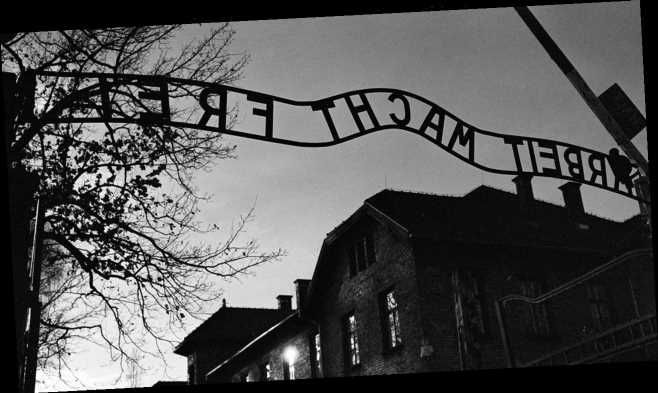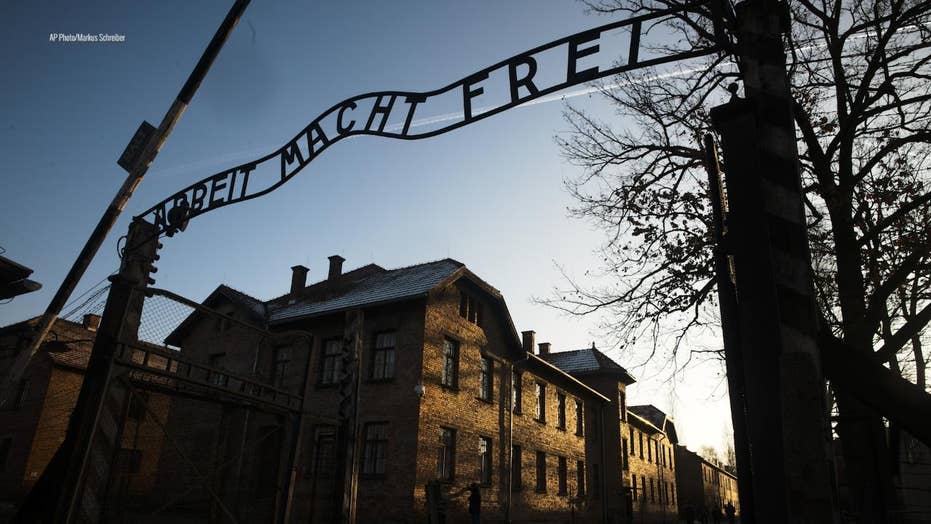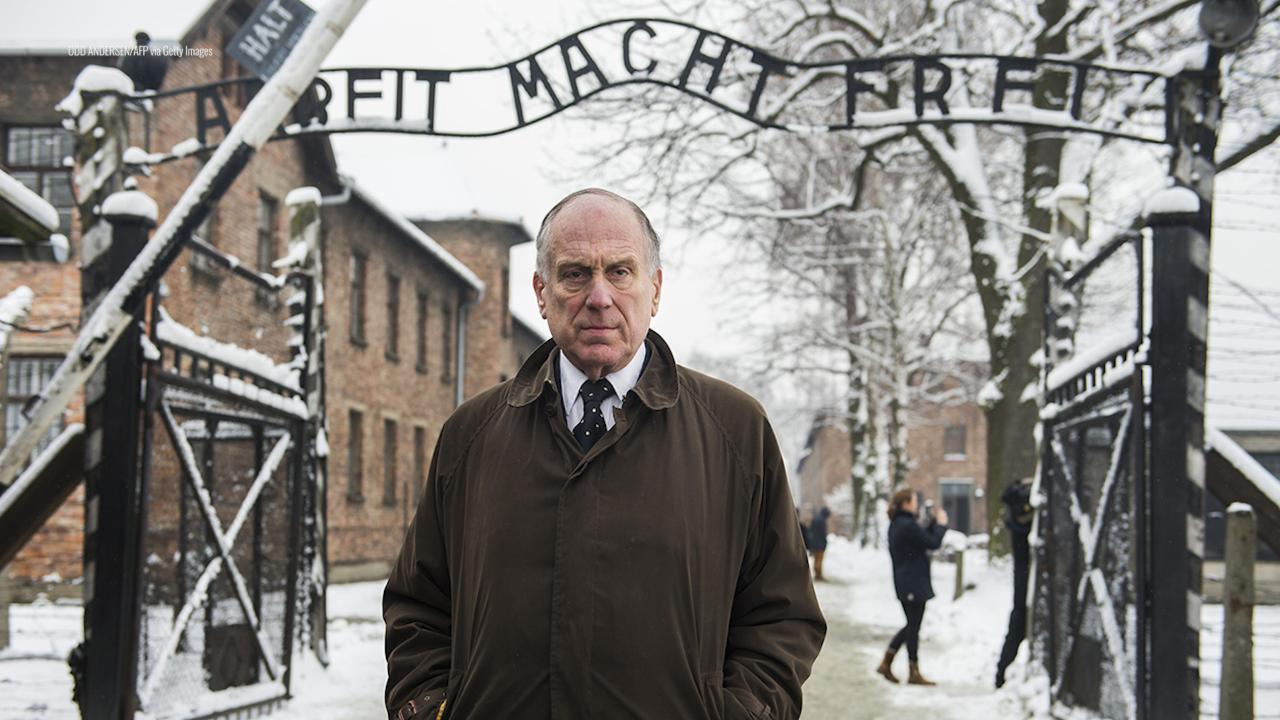Auschwitz survivors recount experience at death camp on anniversary of liberation
Holocaust survivors Irene Buchman and Jerry Wartski open up about their experience living through the Nazi regime and surviving its most notorious death camp.
When Jerry Wartski saw the infamous gates of Auschwitz-Birkenau for the first time, which ironically read “Arbeit Macht Frei” – or German for “Work will set you free” – it was moments before his mother was taken away by the Nazis.
He was 14 years old and his mother was among the first selected to be gassed upon arrival from the Lodz ghetto in 1944.
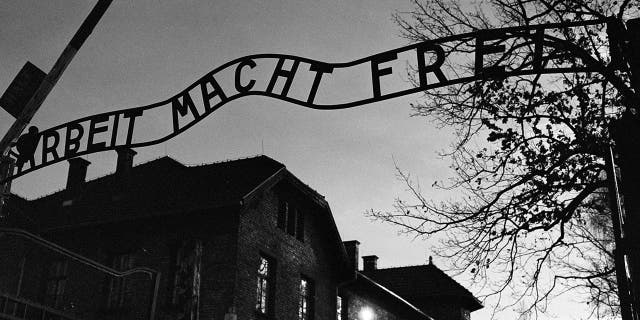
The main entrance at the former Nazi death camp of Auschwitz in Oswiecim, Poland, with the inscription, ‘Arbeit Macht Frei’, which translates into English as ‘"Work will set you free". (AP Photo/Markus Schreiber)
On Monday, the soft-spoken 89-year-old Manhattan real estate businessman stood again under the infamous gate – this time to commemorate the 75th anniversary of the death camp’s liberation. He was joined by nearly 200 other Holocaust survivors.
“The stories that you hear are just unreal and unbelievable and you have to talk,” Wartski, who was born about 100 miles from the camp, told Fox News ahead of his trip to Poland. It was the first time he had ever recorded his experience of the Holocaust. Read his story here.
Auschwitz-Birkenau was the most notorious in a system of death and concentration camps operated by Nazi Germany across occupied Europe. It is estimated that some 1.3 million people were deported to the camp between 1940 and 1945.
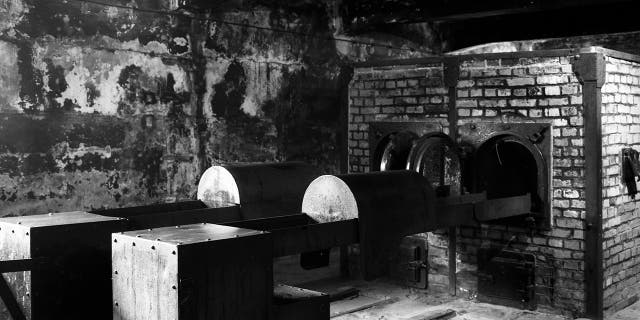
On Jan. 27, 1945, the Soviet Red Army liberated the Auschwitz death camp in German-occupied Poland. Auschwitz was the largest of the Germans’ extermination and death camps and has become a symbol for the terror of the Holocaust. (AP Photo/Markus Schreiber)
Of these, at least 1.1 million are believed to have been murdered by the gas chambers and crematoria before the Soviet Army liberated the camp 75 years ago.
“There is nothing stronger than to walk around Auschwitz and to see what happened to them,” Ronald Lauder, president of the World Jewish Congress, told Fox News ahead of Monday’s anniversary. “You can feel the people. The silence of the people – the million Jews who died there.”
Lauder, an international philanthropist who also serves as chairman of the Auschwitz-Birkenau Memorial Foundation, has been a huge proponent of conserving the material witnesses of history so that future generations can see what hate can do to the world.
“It’s probably the largest graveyard in the world,” he said. “That is Auschwitz.”
Monday’s remembrance is the culmination of several events commemorating the Holocaust.
On Thursday, Muslim leaders joined members of a U.S. Jewish group for an interfaith visit to the camp, while world leaders gathered in Jerusalem.
Speaking at Israel’s Yad Vashem The World Holocaust Remembrance Center on Thursday, Vice President Pence vowed that never again shall the world allow the atrocities committed by the Nazis to be repeated.
“We gather to fulfill the solemn obligation, an obligation of remembrance, to never let the memory of those who died in the Holocaust to be forgotten by anyone anywhere in the world,” he said.
Part of fulfilling the belief that the Holocaust must stay in the human consciousness for the future includes restoring and maintaining the displays of human hair and shoes, clothing left behind after the Soviets liberated the camp.
Lauder, with the help of generous donations from counties around the world – including a recent 66-million-euro donation from Germany last month – established the museum’s conservation labs with the mission of preserving Auschwitz as a living memorial to the people who died.
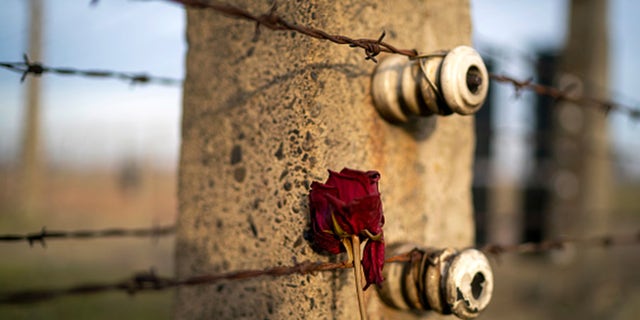
A memorial rose is left on the electric fence of the Auschwitz II-Birkenau extermination camp on December 19, 2019, in Oswiecim, Poland. (Photo by Christopher Furlong/Getty Images)
“People should know what [inhumanity] existed in that era. Jews were persecuted and were put to death,” Irene Buchman, 95, an Auschwitz survivor, told Fox News from her home in New Jersey. “I don’t know how the world allowed Hitler to do what he created. It was very, very inhuman and the world was standing [by] and didn’t say a word, which was shameful and unacceptable.”
“Until this day, I can never forget it," she said. "My parents had to die innocently just because Hitler wanted to kill all the Jews." Read her story here.
HOLOCAUST REMEMBRANCE DAY: FEW AMERICANS KNOW THE DEATH TOLL, POLL FINDS
This 75th anniversary comes as there has been a spike in anti-Semitic sentiment around the world.
A new survey by the Pew Research Center shows that 45 percent of almost 11,000 Americans surveyed did not know that the Nazis killed 6 million Jews during World War II.
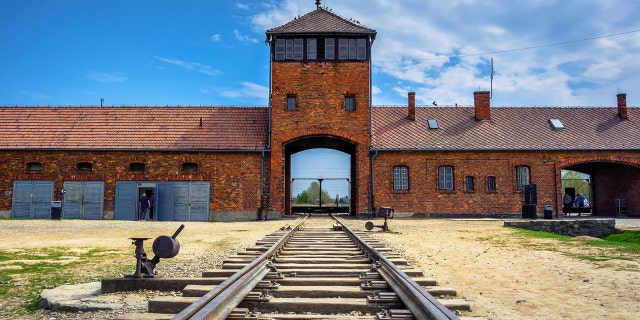
The main gate to the nazi concentration camp of Auschwitz Birkenau with train rail, Poland.
“Shame on us,” Lauder said. “These survivors rebuilt lives. These survivors came out … and they never believed that their children and grandchildren would suffer from anti-Semitism the way they did.
“We have allowed the world again to have anti-Semitism,” he added, recalling a famous quote by author Elie Wiesel, who was a Holocaust and Auschwitz survivor. “He told me the opposite of love is not hate, it’s indifference.’ What we have today in the world is indifference.”
“It’s up to us … to say no more hate,” he added.
Source: Read Full Article
